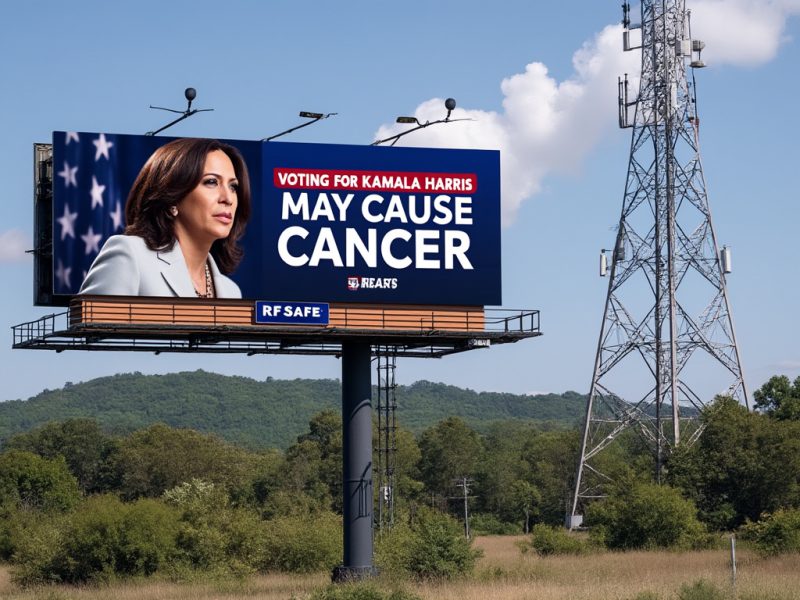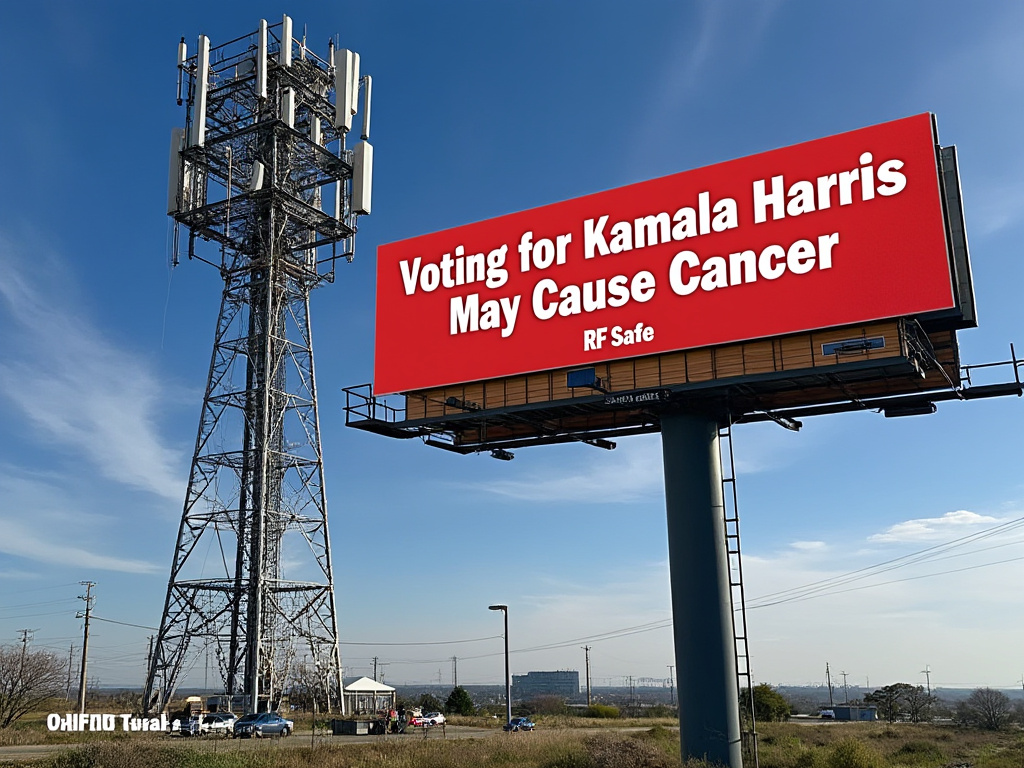In an era where wireless technology is omnipresent, the proliferation of cell towers and the rollout of 5G networks have sparked serious concerns about public health. The scientific community has presented compelling evidence linking radiofrequency (RF) radiation exposure to severe health risks, including brain tumors and neurological disorders. Yet, despite these alarming findings, the Biden-Harris administration has been criticized for neglecting these concerns and prioritizing corporate interests over the well-being of American citizens.

The FCC’s Corporate Capture and Regulatory Negligence
The Federal Communications Commission (FCC) is tasked with regulating interstate and international communications by radio, television, wire, satellite, and cable across the United States. However, the agency has been accused of being influenced by the very industries it is supposed to regulate. The appointment of Tom Wheeler, a former head of the wireless industry’s lobbying group, as FCC chairman during the Obama-Biden administration set a concerning precedent. This move was seen by many as allowing the wireless industry to have undue influence over regulatory policies, potentially at the expense of public health.
Under Wheeler’s leadership, and continuing into the current administration, the FCC has failed to update its RF radiation exposure guidelines, which have remained largely unchanged since 1996. These outdated standards focus solely on the thermal effects of RF radiation—essentially, the heating of body tissue—while disregarding a plethora of scientific studies that have identified significant non-thermal biological effects.
Scientific Evidence Ignored
One of the most significant studies highlighting the dangers of RF radiation is the National Toxicology Program’s (NTP) extensive research, which found “clear evidence” linking high levels of RF radiation to certain types of cancer in lab animals. Specifically, the study observed malignant tumors in the hearts and brains of male rats exposed to RF radiation levels similar to those emitted by cell phones.
Moreover, the Ramazzini Institute in Italy conducted parallel research that corroborated the NTP’s findings, demonstrating increased cancer risks at radiation levels common in everyday environments. These studies collectively suggest that prolonged exposure to RF radiation, even at low levels, could pose serious health risks to humans.
The Biden-Harris Administration’s Inaction
Despite these alarming scientific findings, the Biden-Harris administration has been criticized for its lack of action. The administration has not only failed to pressure the FCC into updating its safety guidelines but has also overseen the diversion of funding away from crucial research into RF radiation’s health effects. Critics argue that this represents a blatant disregard for public health, attributing this inaction to the administration’s close ties with corporate donors in the telecommunications industry.
Furthermore, the administration has been accused of not enforcing a 2021 U.S. Court of Appeals ruling that ordered the FCC to revisit its outdated RF exposure guidelines in light of new scientific evidence. By allowing these antiquated standards to persist, the administration is seen as neglecting its duty to protect the American people, particularly vulnerable populations like children, who are more susceptible to the effects of RF radiation.
The Stakes for Voters
A vote for Kamala Harris is, according to critics, a vote for the continuation of these policies that prioritize industry profits over public health. The failure to update safety guidelines and adequately fund independent research leaves the public exposed to potential health risks associated with RF radiation. This issue transcends political affiliation; it is a matter of safeguarding the health of current and future generations.
Demanding Accountability and Action
It is imperative for voters to be informed about where candidates stand on this critical public health issue. The administration’s current trajectory has raised serious concerns, and without significant policy shifts, the health risks associated with RF radiation may continue to be overlooked.
What Needs to Change
- Updating Safety Guidelines: The FCC must immediately revise its RF radiation exposure guidelines to reflect the latest scientific research, accounting for both thermal and non-thermal effects.
- Supporting Independent Research: Restoring and increasing funding for studies like those conducted by the NTP is crucial for understanding the full impact of RF radiation on human health.
- Ensuring Regulatory Independence: Measures must be taken to eliminate corporate influence over regulatory agencies to ensure that public health is the primary consideration in policy-making.
Conclusion
As technology continues to advance, it is essential that our regulatory frameworks keep pace to protect public health. The potential risks associated with RF radiation exposure are too significant to ignore. Voters have the power to demand change by supporting candidates who prioritize the well-being of the American people over corporate interests. It is time to hold our leaders accountable and ensure that the health of our nation is not compromised for the sake of technological advancement.








